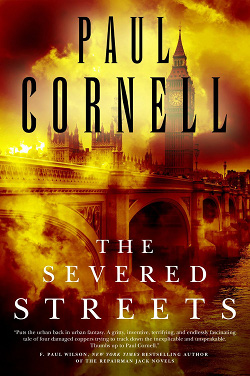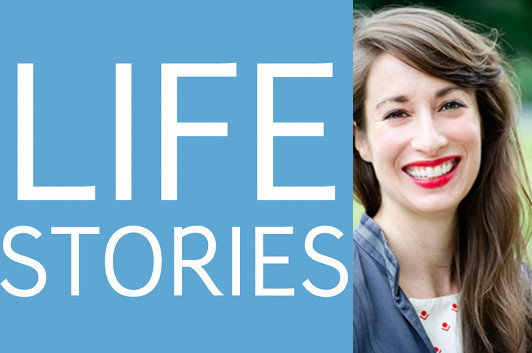Life Stories #78: Jen Doll
Subscribe to Life Stories in iTunes
In this episode of Life Stories, the podcast where I interview memoir writers about their lives and the art of writing memoir, Jen Doll talks about her experiences as a serial wedding guest, as recounted in her memoir Save the Date. So we discussed how she came up with the idea of writing a book around (some of) the weddings she’s attended, what it’s like periodically reuniting with the same friends—and, in one case, former friend, how our parents’ relationships shape our personal concepts of marriage, and, as long as we’re telling wedding stories, which ones are the most embarrassing:
“I think the most really sad embarrassing thing that I’ve done has been allowing my stubbornness and immaturity create a situation where a relationship couldn’t be regained [with the former friend she’d run into at several weddings]… You know, I don’t actually think that I was wrong, just like I don’t think she was wrong, but I wish that I’d handled it differently. And so it’s embarrassing to think back about those weddings and think, ‘Yeah, you kinda drank too much and you end up puking and screaming at someone…’ That’s pretty awful.
On the other side of that—I think this is a more funny embarrassing moment, because all was forgiven and my friends now think of it as a funny story… It’s the moment where I threw my shoes down the road because I refused to leave a party and it sounds horrible, but it also now is the stuff of legend in my friend group, and the bride and groom think it’s really funny. So, I feel better about that, even though I wish I hadn’t done it.”
Listen to Life Stories #78: Jen Doll (MP3 file); or download this file by right-clicking (Mac users, option-click). Or subscribe to Life Stories in iTunes, where you can catch up with earlier episodes and be alerted whenever a new one is released. (And if you are an iTunes subscriber, please consider rating and reviewing the podcast!)
2 August 2014 | life stories |
Read This: The Severed Streets
In 2010, China Miéville’s Kraken served up, among many other delightfully weird story elements, a division of the London police that specialized in crimes involving the supernatural world, and in the years since reading that book I’ve noticed a few other books that place the eldritch London police procedural front and center. (Note: I’m not counting Charlie Stross’s “Laundry Files” series, because that’s more about combining supernatural horror with a particularly British type of spy thriller.) I’ve been meaning, for example, to dive into Ben Aaronovitch’s Rivers of London and its sequels for a while now, and I’m doubling down on that intention, now that I’ve recently read the two books in the series that might be its most direct competition.
 Paul Cornell’s London Falling introduced readers to the “Shadow Police,” four members of the Metropolitan Police force who, while confronting the prime suspect in the murder of a local crime boss, are inadvertently gifted with “the Sight,” enabling them to see the (generally sinister) magical undercurrents of the City. The experience terrifies them more than a little, but they also recognize that, now that they know there are dark forces at work in their city, their dedication to police work calls on them to do something about it—so they decide to hang on to their newfound abilities and let London’s supernatural underworld know that they’re prepared to lay down the law. And The Severed Streets picks up the story very soon after…
Paul Cornell’s London Falling introduced readers to the “Shadow Police,” four members of the Metropolitan Police force who, while confronting the prime suspect in the murder of a local crime boss, are inadvertently gifted with “the Sight,” enabling them to see the (generally sinister) magical undercurrents of the City. The experience terrifies them more than a little, but they also recognize that, now that they know there are dark forces at work in their city, their dedication to police work calls on them to do something about it—so they decide to hang on to their newfound abilities and let London’s supernatural underworld know that they’re prepared to lay down the law. And The Severed Streets picks up the story very soon after…
Now, it happens that the initial gimmick of The Severed Streets—a series of murders that may possibly have been committed by the ghost of Jack the Ripper—has already been the central premise of Maureen Johnson’s YA paranormal thriller The Name of the Star. But Cornell takes that plot kernel and cultivates a completely different story from it, not least of all because he’s coming at it from the perspective of a native Brit for whom gritty ’70s cop shows like The Sweeney are almost certainly a formative influence, one that’s jokingly acknowledged here and there. Cornell’s novel is very much plugged into the contemporary unrest over economic inequality, and it only takes a bit of prodding on his part to create a fictional London on the brink of civil chaos that (supernatural aspects aside) feels plausible. He’s also very effective at showing how his four main characters cope with the discoveries they’re making as they probe the contours of their new territory. There’s a lot of information for them to process, as well as personal crises to work through—and Cornell manages to keep all these balls in the air while moving forward with nearly consistently effective pacing.
Also, Neil Gaiman shows up for absolutely perfect reasons, managing to make even an extended expository dialogue entertaining… although, by the time he heads offstage, you may never be able to look him in the eye should you ever meet.
29 July 2014 | read this |


 Our Endless and Proper Work is my new book with Belt Publishing about starting (and sticking to) a productive writing practice.
Our Endless and Proper Work is my new book with Belt Publishing about starting (and sticking to) a productive writing practice. 
